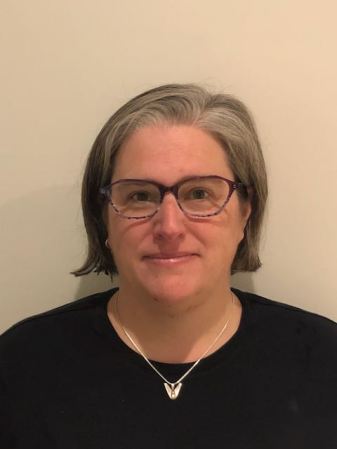
Taking a “Learning Organization” to Heart
In which you ask Marcie about her upcoming adventures:

Me: [casually over a zoom lunch] Oh, by the way, I’ve run away to California and am starting a PhD.
You: [sputtering soup] You’re doing what?!?
Me: Well, exactly and not exactly… I’ll be living in Berkeley for the next nine months before I move back to Hamilton to be with my family again. During this year (and beyond), I will continue my part-time position at CCS as program staff, with primary responsibility for the Integration Year part of our program.
You: [relieved] Well, that’s good, I guess. And the PhD?
Me: [excitedly]Yes, I’m starting a PhD at the Graduate Theological Union, in the department of Religion and Practice / Practical Theology. I want to delve further into “Diakonia as Pedagogy” – how the theologies, praxis, and history of diakonia can inform the ways we structure theological education and ministry formation.
You: [cautiously] That’s kinda cool. What’s the purpose?
Me: [takes a deep breath, starts spiel] “I believe this is relevant not only to formation for the diaconate, in its varied ecumenical expressions, but to all forms of ordered/ recognized/ accountable ministry, schools, and denominations, particularly of mainline protestant traditions. As schools’ and denominational expectations shift, in response to global dynamics, demographic trends, theological exploration, intentional decolonization, accessibility, and technological possibilities, it is imperative that we consider not only the content of theological education/ministry formation, but the methods and principles behind how we engage the educational process itself as transformative ministry and practical theology. The pandemic has exacerbated this and strengthens the need for innovation, critical analysis, and evidence-based practice. Diakonia – as I experience and understand it thus far – has a history of being adaptive, responsive, transformative, nimble, and ecumenical in nature. Often rooted in marginalized and women’s experiences of ministry, and intentionally located at the boundaries of church and world in its praxis, it offers a critical and expansive perspective to this conversation.” Or at least I hope it can. That’s why I want to spend time on this research and better equip us for the conversations.
You: [stepping back] I think I might need to digest that for a bit. Why do you want to go so far away though?
Me: I think it’s good for me to stretch beyond familiar networks. The GTU is a large, progressive school with some diaconal history, and offers many opportunities for ecumenical and cross-disciplinary dialogue, particularly with the Methodist, United Church of Christ, Lutheran, Unitarian, Jesuit, and Episcopalian colleges in the consortium. While I have some experience learning and teaching in different Canadian theological schools, the Canadian diaconate is a small community and I believe that GTU would expand my international scope and offer valuable connections, particularly with Asian, Black, and Latinx scholarship.
You: Yeah, I guess that makes sense. Also, they grow avocados there, and isn’t your brother’s family close by?
Me: Yes, I’m excited to see my niece and family, though I’ll sure miss my kids and family back in Hamilton. Good thing they are a bit older, and there is better technology now to stay connected.
You: So, I’ve gotta ask; this is like a 5-7 year program, why do you want to go do this now?
Me: Well, it doesn’t surprise me to be going ‘back to school’, but I wasn’t sure what that would look like until now. In 2014, when I finished my master’s at the University of Winnipeg, they were busy closing their Faculty of Theology. I was quickly running out of steam for writing papers and was busy delving into fulltime ministry alongside parenting. To the question of whether I would continue with another degree, the resounding answer was, “Oh G-d, not right now.” Besides which, I didn’t yet know what else I wanted to study and so it seemed a good time to focus elsewhere. But curiosity and passionate questions have a way of wrapping their tendrils around my brain – whether it’s community assessment consultations as part of my previous career in community organizing and social work, or community-directed research in congregational ministry, or program review and redesign with CCS, or research into Pastoral Relations Equity for the United Church, my life and ministry always involves curiosity and asking questions. For now, I am channeling some of that energy through a formal PhD process.
You: Well, you’re in good historic company.
Me: Yes, I feel really thankful that CCS values being a learning community and encourages its staff to engage in education. I am grateful for all those in the diaconate who have done previous research and writing, degrees and community-based learning, and are willing to share both their passionate questions as well as their wisdom. I’m also grateful for generous help from the Gertrude Rutherford Scholarship, for CCS students or grads pursuing a degree in religious education.
You: We’re sending you off with blessings. Will you keep us updated?
Me: I sure will!





Comments: 2
What an exciting opportunity. Embrace the “new” and we feel assured that our lives will be enriched as you share your journey as someone dedicated to her teaching.
The alumni of CCS are excited as the future continues to look brighter. Christ ‘s love and grace be your constant companion.
Marcie,
I am so impressed that you are taking on this new phase of your life! You are a good example for all of us. It’s never too late to keep learning.
I hope you enjoy your return to studying, and that you share little tidbits with us along the way 🙂 Wishing you many blessings on your journey.
Comments are closed.